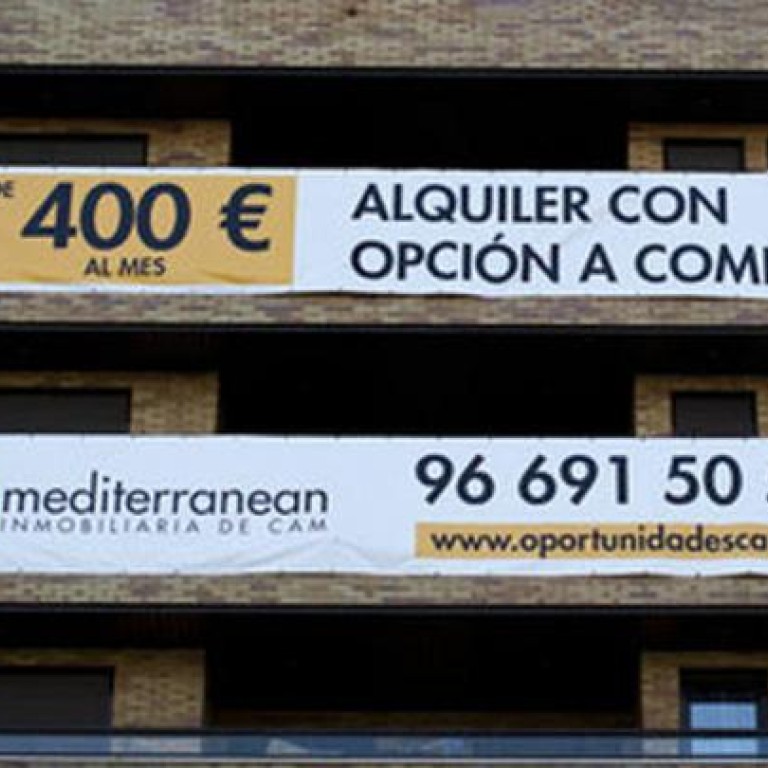
Spain plans to lure Chinese property buyers with residency permit
Ailing euro-zone nation, saddled with unsold homes after property crash, hopes to lure Chinese and Russian investors by easing laws
Spain plans to offer residency permits to foreigners who buy houses priced at more than 160,000 euros (HK$1.59 million) in a bid to revive its collapsed real estate market and divest itself of hundreds of thousands of unsold homes.

Garcia-Legaz said Spain was following in the footsteps of Ireland and Portugal, two other ailing euro-zone economies that have sought to spur their housing markets by easing residency requirements.
Spain normally grants visas that are valid for up to 90 days to citizens of countries that are outside the European Union. The residency permits for foreign homebuyers would be for a much longer period of time, but would not be open-ended. That detail has yet to be decided. The permits would also not grant the buyer the right to work in Spain.
The proposal will be discussed in the coming days by the Spanish government.
Mariano Rajoy, the country's prime minister, said it was important for Spain to reduce its stock of unsold homes - "and not at the disproportional valuations of previous years".
Government data shows there are about 700,000 unsold homes on the market as a result of a property boom that came to an abrupt halt in 2008.
The bursting of the property bubble dealt a severe blow to the construction sector, which had been one of the main engines of the economy, and left the country's banks crippled by bad loans.
Mortgage defaults have continued to climb. On Monday, the Bank of Spain said that in September the level of bad loans held by Spanish banks had reached a record 10.7 per cent of their total loan portfolios - equivalent to 182 billion euros.
Jose Luis Suarez, a real estate specialist and professor at the IESE business school in Madrid, praised the plan. "The secondary home market in Spain could still have a bright future, but that will need to be mainly because of foreigners," he said.
Last year, housing purchases in Spain by foreigners rose six per cent from 2010. Purchases by Russians soared nearly 28 per cent, to 1,757 units. Chinese buyers acquired 868 homes last year, up seven per cent from 2010.
Miguel Hernandez, a real estate specialist at the IE business school in Madrid, questioned whether the new plan would attract Chinese buyers. "The Russians have certainly been busy buying in holiday areas like the Costa del Sol, but the Chinese interest seems to have been much more in industrial areas rather than for coastal or other residential properties," he said.
Hundreds of thousands of sun-seeking foreign retirees, mainly from Northern Europe, already reside in Spain and helped fuel the property boom.
Suarez of IESE said the government should take other steps to attract foreign buyers, such as "repair the housing distribution channel" by, for example, providing incentives for new real estate brokers. Many brokers from Britain and other countries left Spain when the property bubble burst.
Another concern, Suarez said, was lax enforcement of real estate laws. After the bubble burst, it emerged that during the boom years, authorities had often approved construction of houses that violated environmental laws or other regulations.
